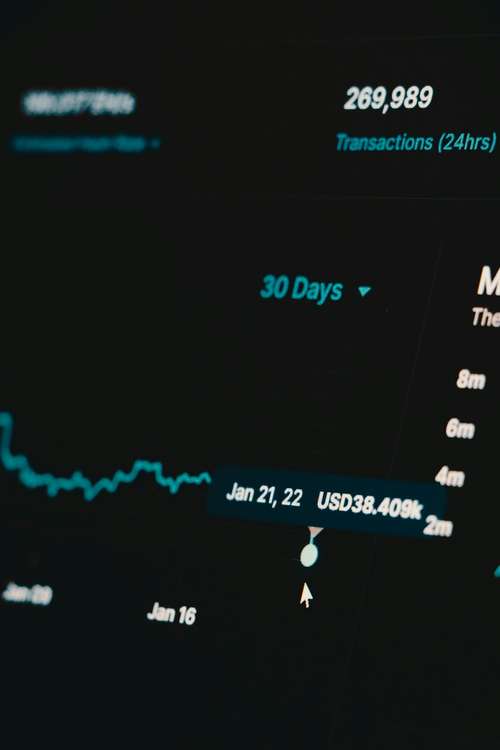The world of investing is ever-changing, and if you're a Bitcoin enthusiast, you might be feeling a little uneasy lately. The South Korean Kospi index has been on a tear lately, smashing previous records and sending clear signals to the global markets. It's almost as if the traditional stock market is whispering some hints about Bitcoin's days of glory possibly winding down. In our fast-paced financial news cycle, clues like these can make you wonder: is this the turning point for cryptocurrency investing?
There's a lot of chatter about how the developments in South Korea's stock market could affect the BTC bull run. Investors are starting to notice that as shareholder-friendly policies boost market confidence, the meteoric rise of Bitcoin might hit a snag. This is not just a coincidence; it taps into the deep and complex relationship between global markets and digital currencies. When one arena thrives, the other might stumble in response to shifting economic indicators.
Even though Bitcoin has been the darling of the cryptocurrency world, bulls should take note. The record highs of the South Korean Kospi index might be painting a broader picture that challenges some of the long-held bullish sentiments around BTC. With plenty of market trends converging, it's a classic case of tradition versus innovation.
Bitcoin's Bull Run: A Changing Tide?
When you think about Bitcoin, you probably picture a relentless upward surge, a sure bet in the digital age. But have you ever considered that the tides might be turning? The BTC bull run has been fueled by its decentralized nature and global acceptance, but that momentum can be fragile in the face of macroeconomic shifts.
The current scenario in South Korea raises some interesting questions about the future of Bitcoin. There’s a growing belief among some financial analysts that if traditional markets—like the Kospi—continue on their upward trajectory, they could drain the risk appetite from cryptocurrency investors. This, in turn, might slow down Bitcoin's legendary bull run. The idea is simple: when traditional investments seem more secure and profitable, investors may reallocate funds from volatile assets like cryptocurrency.
This shift in attention isn't merely about numbers; it's about sentiment. Global markets are highly sensitive to economic indicators, and even a slight change in sentiment can trigger a significant transfer of capital. Some adopters of Bitcoin have begun to wonder if the proverbial writing is on the wall for the current crypto rally, with even modest shifts in global risk sentiment potentially cooling the enthusiasm for Bitcoin.
South Korean Kospi's Meteoric Rise
The South Korean Kospi index has been setting record highs, driven by a mixture of innovative shareholder-friendly policies and a wave of positive global market sentiment. Investors in South Korea are enjoying a blend of robust economic fundamentals and proactive policies that make domestic markets more attractive. This phenomenon isn’t just a fluke; it reflects a broader trend of traditional markets optimizing for performance and stability.
Imagine the Kospi index as a well-oiled machine, humming along with precision and efficiency. Now, picture Bitcoin as a high-speed sports car that occasionally skids out on a slick road. Both operate in fundamentally different environments—even if they share the same global financial ecosystem. The record highs achieved by the Kospi indicate that investors are flocking to safer, more predictable arenas, and that attention could very well pull capital away from more volatile options like Bitcoin.
With policymakers in South Korea continually refining strategies that emphasize transparency and long-term growth, record highs aren’t happening by chance. These economic indicators show that a more predictable and steady investment environment is emerging. This could tempt investors away from the roller-coaster ride of cryptocurrency trading.
Global Market Trends & Economic Indicators
The relationship between global markets and cryptocurrencies isn't a simple one-to-one correlation. While many believe in Bitcoin's potential to decouple from traditional economic turbulences, there’s increasing evidence to suggest that macroeconomic conditions, including stock market trends, play a significant role.
Take, for example, the way global markets react to central bank decisions and fiscal policies. When these decisions align with positive market trends—like the record highs seen in South Korea—it can cause a domino effect. Investors start rebalancing portfolios, often shifting away from cryptocurrency into what they perceive as safer, more stable investments. This very dynamic might act as a roadblock for Bitcoin's BTC bull run.
The financial world can sometimes seem like a giant see-saw, where a tilt in one direction inevitably affects the counterbalance on the other end. Investors and traders have taken note of these patterns, keeping a close eye on economic indicators around the world. When you see trends like the South Korean Kospi reaching new heights, it's a clear signal that market dynamics are evolving rapidly, with the potential to alter the course of Bitcoin trends globally.
It’s like watching a high-stakes chess game where every move counts. The interplay between stock market performance and cryptocurrency movements is fascinating, with investors always on the lookout for the next big pivot. Even seasoned analysts are keeping tabs on how these traditional market surges could rein in some of the exuberance surrounding digital currencies.
What Does This Mean for Cryptocurrency?
If you're a Bitcoin enthusiast, the interplay between the optimistic outlook in South Korea and Bitcoin's current performance might have you rethinking your investment strategy. In the world of cryptocurrency, volatility is the norm, but steady progress in the traditional markets often signals a shift in investor sentiment. With the South Korean Kospi reaching record highs, some are beginning to wonder if the unstoppable Bitcoin bull run might pause—or worse, slow down considerably.
This discussion is not meant to instill fear but rather to highlight the importance of staying informed and agile in today's investment environment. Active traders, as well as long-term investors, can benefit from keeping an eye on economic indicators, as even the slightest change in global market trends can suggest a major strategic adjustment.
For instance, if you're an investor relying solely on the crypto market for rapid gains, the emerging trend in South Korea might motivate you to diversify your portfolio. Global markets are intricately linked, and an upturn in one area often heralds changes in another. It’s crucial to remember that while Bitcoin has been a powerhouse of innovation, it’s not immune to the broader forces of supply, demand, and investor confidence in traditional sectors.
Every investment decision comes with its set of risks. As the saying goes, past performance is not necessarily indicative of future results. The evolving dynamics between traditional and crypto markets mean that savvy investors will need to weigh both factors carefully. Understanding the shifting landscape is key to developing a robust investment strategy in today's intertwined global marketplace.
In conclusion, while the soaring South Korean Kospi index illustrates the potential for robust growth in traditional markets, it also acts as a cautionary signal for those riding the Bitcoin wave. Investors should keep a close eye on both spheres, ensuring that their strategies remain balanced amidst change. The interplay between these markets might just redefine what comes next for BTC's much-talked-about bull run, reminding us that in the world of investing, no trend is truly invincible.




